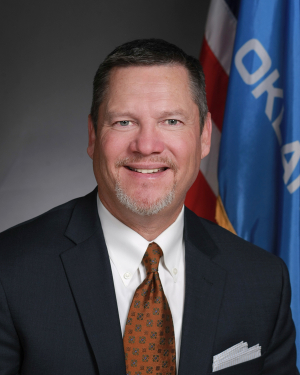By the end of this week we will have completed the first month of the of the 2019 session and passed the February 28 deadline for bills introduced in the Senate to be voted on by Senate Committees.
One thing we’ve been waiting for is the February meeting of the State Board of Equalization. This panel of state officials looks at tax collections in every category as well as state, national and even international economic trends and forecasts, and makes a certification of the amount of revenue projected to be available for the Legislature to appropriate in the coming budget year.
The panel made its initial projection in December, but the one we base our budget on is the February certification. That took place this last week, and the members certified we’d have approximately $575 million in new revenue for the coming fiscal year, slightly less than the December projection because of fluctuations in natural gas and income tax collections.
This is not an insignificant amount of money. But keep in mind, our state is already facing multiple obligations that will require the use of a significant portion of those funds. Among them is the ad valorem reimbursement fund. That amount alone is nearly $100 million. There’s bond debt for the Capitol and Corrections totaling $19.4 million and $7.2 million, almost another $20 million for teacher flex benefit increases and nearly $15 million for a children’s health insurance program.
Many state agencies are hoping for additional funds in the current budget year, and agencies have made requests for increases in FY 2020 that exceed $1 billion. Suffice it to say, no entity is going to get everything they want.
We must approach the appropriations process cautiously and carefully prioritize any additional investments so that the end result is a balanced budget that leaves our state on strong footing going into the next fiscal year.
Of course much of our time in the past three weeks has been spent on committee work, either voting on bills or presenting our own to our fellow members. We’ve already had several high-profile issues in front of us. One of them is the Constitutional Carry bill. It allows people over 21 to carry without a permit, though the age limit is 18 and up for veterans, active duty and reservists.
It should be pointed out that there are several protections included in the bill. For one the bill prohibits felons and those with domestic violence convictions or people who’ve been adjudicated as having a mental illness from carrying a firearm. This bill will maintain the ability of private property owners to prohibit firearms from being carried. This legislation also retains the ability of colleges and universities to set their own policies about the carrying of firearms on their campuses.
Many Oklahomans might be surprised to know there are already people in our state who have the right to Constitutional Carry—they’re just not Oklahomans. Because of reciprocity laws, individuals from the 15 other states that already allow Constitutional Carry can carry without a permit in Oklahoma. This includes people from bordering states that already have this law on the books, including Kansas, Arkansas and Missouri. This has been the case for years. This bill simply extends that same Second Amendment right to Oklahomans.
Thank you for the privilege of allowing me to be your voice in the Oklahoma Senate. Please feel free to contact my Capitol office with any questions or concerns you may have about legislation or other issues impacting our state at 405.521.5628 or at chuck.hall@oksenate.gov.




Be the first to comment on "Senate Minutes with State Senator Chuck Hall"